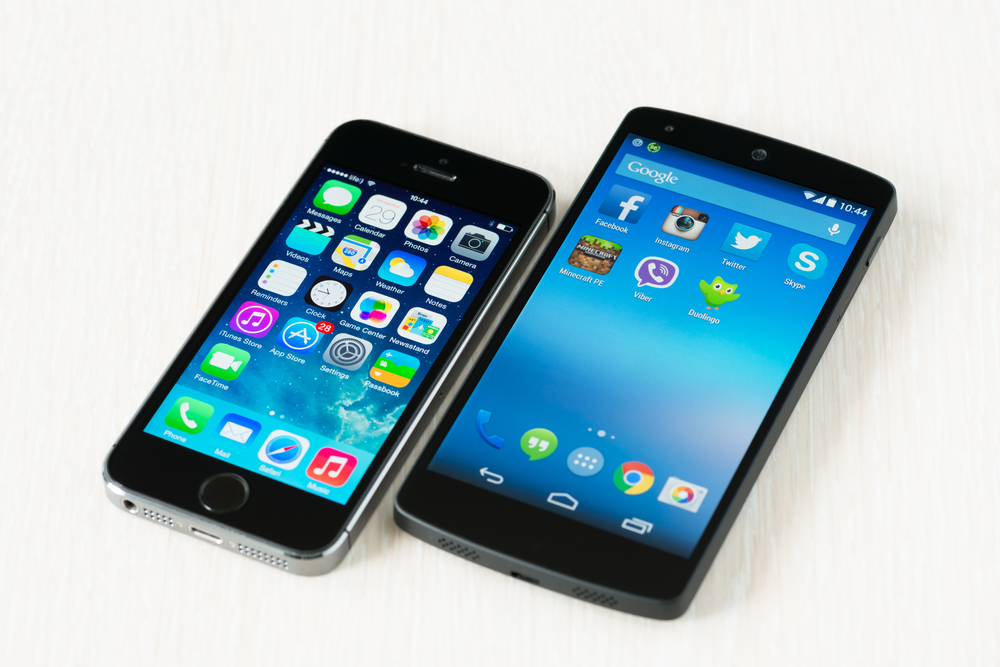
With the ever-increasing popularity of smartphones and mobile devices, mobile apps have become a crucial part of our lives. From social networking to gaming, mobile apps provide a convenient and accessible way to access and engage with a variety of services. However, with millions of apps available across different app stores, standing out from the competition and getting your app noticed can be a daunting task. This is where mobile app marketing comes into play. In this article, we will explore some essential tips and tricks to help you master the art of mobile app promotion.
1. Understand Your Target AudienceBefore diving into the world of mobile iOS or Android app marketing, it is vital to have a clear understanding of your target audience. Knowing who your app is designed for allows you to tailor your marketing strategy accordingly. Conduct market research to identify your users' demographics, interests, and preferences. This valuable information will help you create targeted and personalized marketing campaigns that resonate with your audience, ultimately leading to higher engagement and conversion rates.
2. Optimize Your App Store Listing
A well-optimized app store listing is crucial for attracting potential users. When users search for a specific app or browse through categories, your app's listing should appear in relevant search results. To achieve this, optimize your app's title, description, and keywords. Use relevant keywords that accurately describe your app's features and functionalities. Additionally, include high-quality screenshots and engaging app preview videos to showcase your app's best features. An appealing and informative app store listing can significantly impact your app's visibility and downloads.
3. Leverage Social Media Platforms
Social media platforms have become a powerful tool for marketing and promoting mobile Google Play or App Store app s. Create dedicated social media profiles for your app on platforms like Facebook, Instagram, and Twitter. Regularly post engaging content, such as app updates, feature highlights, or user testimonials. Encourage your users to share their experiences with your app on social media and engage with them by responding to comments and messages. Leverage social media advertising options to target specific demographics and reach a wider audience that may be interested in your app.
4. Implement App Store Optimization (ASO)
App Store Optimization (ASO) is the process of optimizing your app's visibility and ranking within app store search results. Similar to search engine optimization (SEO), ASO involves optimizing various elements of your app store listing to improve its discoverability. This includes optimizing your app's title, description, keywords, and even the app's icon and screenshots. By implementing ASO techniques, you can increase your app's ranking in search results, leading to more organic downloads and visibility.
5. Encourage User Reviews and Ratings
User reviews and ratings play a significant role in the success of your app. Positive reviews and high ratings build trust and credibility, making it more likely for potential users to download your app. Encourage your users to leave reviews and ratings by integrating a simple and straightforward feedback mechanism within your app. Offer incentives like exclusive content or in-app rewards for users who provide feedback. However, it is essential to address negative reviews promptly and professionally, showing users that you value their opinions and are committed to improving the app experience.
FAQ (Frequently Asked Questions):
1. How long does it take to see results from mobile app marketing?mobile App Store or Google Play app marketing is an ongoing process, and results can vary depending on various factors such as the target market, competition, and the effectiveness of your marketing strategies. Generally, it may take a few weeks to months to see noticeable results in terms of increased app downloads and user engagement.
2. Is advertising necessary for promoting a mobile Android or iOS app ?
While advertising can significantly boost your app's visibility and downloads, it is not the only way to promote your app. You can also leverage organic methods such as app store optimization, content marketing, social media promotion, and influencer partnerships. However, for faster results and reaching a broader audience, targeted advertising campaigns can be highly effective.
3. Can I update my app's marketing strategies after launch?
Yes, you can and should update your app's marketing strategies after launch. Monitor key metrics such as app store rankings, user engagement, and retention rates to identify areas that need improvement. Based on these insights, refine your marketing strategies and tactics to continuously optimize your app's promotion.
4. How important are app store reviews and ratings for user acquisition?
App store reviews and ratings are crucial for user acquisition. Positive reviews and high ratings not only attract potential users but also increase your app's credibility and trustworthiness. Users often rely on reviews and ratings to make informed decisions about downloading apps.
5. What is the role of app analytics in mobile app marketing?
App analytics provide valuable insights into how users are engaging with your app. You can track metrics such as daily active users, user retention rates, in-app purchases, and conversion rates. These insights help you understand user behavior, identify areas for improvement, and optimize your marketing efforts for better app performance and user satisfaction.
Other useful resources
- https://en.wikipedia.org/wiki/Mobile_app
- https://simple.wikipedia.org/wiki/App_Store_(iOS)
- https://www.appguru24.com/ios-app-promotion/